Date: Monday, July 11, 2022, 2:00 – 3:25 PM ET
Webinar Description:
Please join the Section on Remedies for our 2022 Section Webinar where remedies professors will offer tips on teaching.
Learning Objectives:
Click Here to Watch the Webinar Replay
*Registration is required.
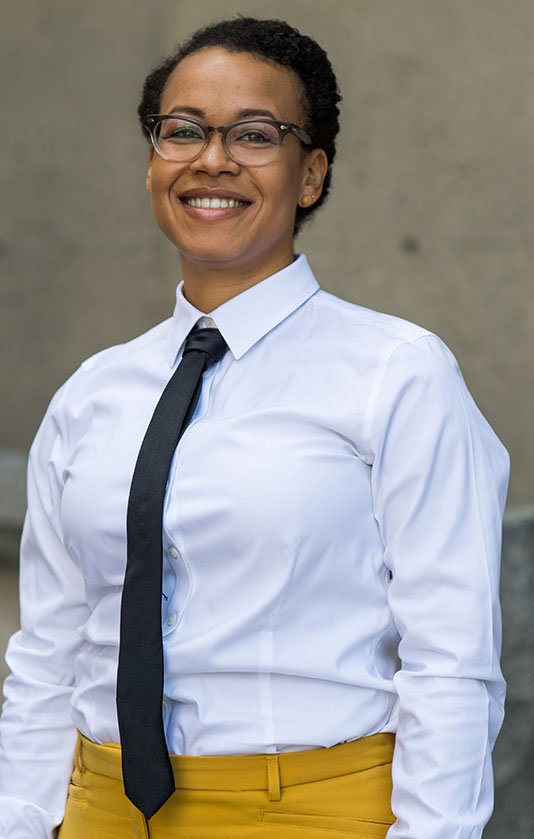
Portia Pedro, Ph.D., J.D., Associate Professor of Law, Boston University School of Law
Portia Pedro, a former public interest litigation fellow who also worked as a litigation associate at Debevoise & Plimpton LLP, joined the full-time faculty of Boston University School of Law as an associate professor in July 2018. She teaches civil procedure, remedies, and critical civil procedure.
Professor Pedro studies the ways in which racial subordination and subordination of other marginalized groups is embedded in civil procedure, remedies, and federal courts. She attempts to identify the marginalizing effects of seemingly technocratic or neutral rules, mechanisms, and doctrines in order to work against inequality that is embedded in the structure of the U.S. legal system. Her forthcoming co-edited book volume, A Guide to Civil Procedure: Integrating Critical Legal Perspectives, will be a resource of critical legal perspectives about civil procedure that focus on issues such as race, sex, gender identity and expression, disability, class, immigration status, and sexual orientation.
During her two years as a litigation associate at Debevoise in New York, Professor Pedro conducted motions practice, second-seated a trial, prepared witnesses for federal investigations, and litigated class action claims. She also practiced law for two years as a John J. Gibbons Fellow in Public Interest and Constitutional Law at Gibbons PC in Newark, New Jersey, where she litigated civil rights claims, negotiated attorneys’ fees, and filed amicus briefs. Professor Pedro co-authored briefs that secured marriage equality for same-sex couples in New Jersey, and she successfully opposed a motion to dismiss the equal protection claims of Muslim plaintiffs in New Jersey who were surveilled by the New York Police Department for their religious beliefs. Prior to her doctoral studies, Pedro served as a clerk to the Honorable Joseph A. Greenaway, Jr., of the United States Court of Appeals for the Third Circuit.
Professor Pedro is completing her PhD in Law at Yale Law School with a research focus on civil procedure. She holds a JD from Harvard Law School and a BA in International Development Studies from the University of California, Los Angeles. At Harvard Law School, she served as treasurer and vice president of the Harvard Law Review, as an editor of the BlackLetter Law Journal and Harvard Civil Rights-Civil Liberties Law Review, and as Harvard Black Law Students Association’s political chair.
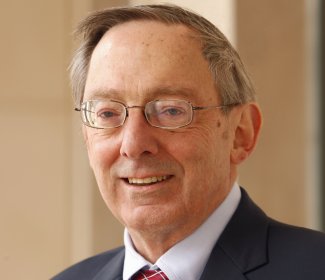 Douglas Laycock, J.D., Class of 1963 Research Professor in honor of Graham C. Lilly and Peter W. Low; Robert E. Scott Distinguished Professor of Law; and Professor of Religious Studies, University of Virginia School of Law
Douglas Laycock, J.D., Class of 1963 Research Professor in honor of Graham C. Lilly and Peter W. Low; Robert E. Scott Distinguished Professor of Law; and Professor of Religious Studies, University of Virginia School of LawDouglas Laycock is perhaps the nation’s leading authority on the law of religious liberty and also on the law of remedies. He has taught and written about these topics for more than four decades at the University of Chicago, the University of Texas, the University of Michigan and now Virginia.
Laycock has testified frequently before Congress and has argued many cases in the courts, including the U.S. Supreme Court, where he has served as lead counsel in six cases and has also filed influential amicus briefs. He is the author (co-author in the most recent edition) of the leading casebook Modern American Remedies, the award-winning monograph The Death of the Irreparable Injury Rule and many articles in leading law reviews. He co-edited a collection of essays, Same-Sex Marriage and Religious Liberty.
His many writings on religious liberty have been republished in a five-volume collection:
Laycock resigned from the Council and as first vice president of the American Law Institute to become co-reporter for the Restatement (Third) of Torts: Remedies. He is a fellow of the American Academy of Arts and Sciences. He earned his B.A. from Michigan State University and his J.D. from the University of Chicago.
 Michael T. Morley, J.D., Assistant Professor, Florida State University College of Law
Michael T. Morley, J.D., Assistant Professor, Florida State University College of LawProfessor Morley joined FSU Law in 2018, and teaches and writes in the areas of election law, constitutional law, remedies, and the federal courts. He is best known for his work on election emergencies and post-election litigation, nationwide and other defendant-oriented injunctions, the jurisdiction of the federal courts and their equitable powers more generally. He has testified before congressional committees, made presentations to election officials for the U.S. Election Assistance Commission and participated in bipartisan blue-ribbon groups to develop election reforms. The governor of Florida also appointed Professor Morley to the Criminal Punishment Code Task Force, to propose potential revisions to the legislature.
The U.S. Supreme Court has cited several of his articles, and he was counsel of record for the successful Petitioner in a landmark campaign finance case. Professor Morley has appeared on C-SPAN, Court TV, Fox News and numerous local news programs, and has been quoted in the Washington Post, Los Angeles Times, Roll Call, Politico, U.S. News and World Report, and a wide range of other national publications. His work has been published in many of the nation’s top law reviews, including the Georgetown Law Journal, Northwestern University Law Review, Boston University Law Review and Emory Law Journal.
Before joining FSU Law, Professor Morley was a Climenko Fellow and Lecturer in Law at Harvard Law School. Prior to his experience in academia, he served in government as special assistant to the General Counsel of the Army at the Pentagon, as well as a law clerk for Judge Gerald B. Tjoflat of the U.S. Court of Appeals for the Eleventh Circuit. During his tenure with the Army General Counsel’s office, he was awarded the Meritorious Civilian Service Award and the Army Staff Lapel Pin. He also worked as an associate at Williams & Connolly LLP and the Supreme Court & Appellate group of Winston & Strawn, LLP, both in Washington, D.C.
Professor Morley earned his J.D. from Yale Law School in 2003, where he was a senior editor on the Yale Law Journal; served on the moot court board; and received the Thurman Arnold Prize for Best Oralist in the Morris Tyler Moot Court of Appeals.
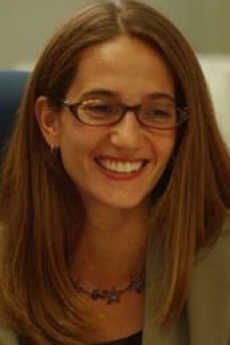 Caprice L. Roberts, J.D., Visiting Professor of Law, George Washington University Law School
Caprice L. Roberts, J.D., Visiting Professor of Law, George Washington University Law SchoolCaprice L. Roberts is a Visiting Professor of Law at the George Washington University Law School. Professor Roberts regularly teaches Federal Courts, Remedies, and Contracts. At GW Law, she will also teach Property and Leg-Reg. Her scholarship focuses on judicial power and restraint. Her op-ed on Kavanaugh’s Supreme Court confirmation hearing appeared in the Washington Post. Her works have appeared in prominent journals such as: Florida, Cincinnati, Maryland, Washington & Lee, Villanova, Tennessee, Rutgers, Marquette, Lewis & Clark, Louisville, and Seattle. The United States Supreme Court cited Professor Roberts for accurately predicting novel application of unjust enrichment principles to contract law.
Throughout her academic career, Professor Roberts has devoted scholarly and teaching attention to proper judicial role and the advancement of the law of remedies. She recently completed the new edition of the seminal treatise Dobbs & Roberts’s Law of Remedies and has published the 9th edition of a leading Remedies casebook with Doug Rendleman, as well as a coauthored casebook in Federal Courts with Michael Allen and Michael Finch. She has won several awards for her teaching and publications. Professor Roberts is an elected member of the American Law Institute and served on the Consultative Group for the Restatement (Third) of Restitution and Unjust Enrichment. She is the Chair of the AALS Remedies Section and the Deputy Executive Director and Vice-Chair of Programming for the Southeastern Association of Law Schools. She is a Remedies Section Editor for JOTWELL and periodic guest blogger at PrawfsBlawg.
She started her academic career at West Virginia University College of Law where she served as Associate Dean of Faculty Research & Development. She also has taught at the University of Florida Levin College of Law, Washington & Lee University School of Law, Florida State University College of Law, University of North Carolina School of Law, Savannah Law School, and Catholic University Columbus School of Law.
Prior to the academy, Professor Roberts clerked for Chief Judge Julia Smith Gibbons of the United States District Court for the Western District of Tennessee and Judge Ronald Lee Gilman of the United States Court of Appeals for the Sixth Circuit. She also practiced complex civil and criminal litigation with Skadden Arps for several years. She received her JD magna cum laude from Washington & Lee University, where she was lead articles editor and named to the Order of the Coif. She obtained her BA in political theory from Rhodes College.
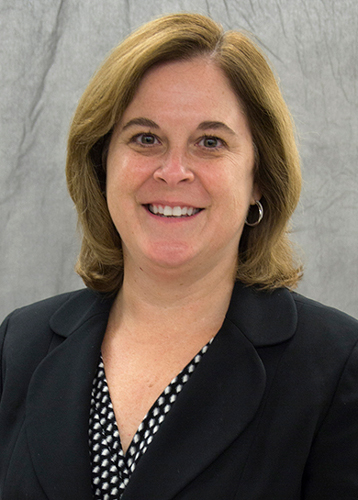 Tracy A. Thomas, J.D., Seiberling Chair of Constitutional Law and Professor of Law, University of Akron School of Law
Tracy A. Thomas, J.D., Seiberling Chair of Constitutional Law and Professor of Law, University of Akron School of LawTracy A. Thomas is Seiberling Chair of Constitutional Law at the University of Akron School of Law. She is of the nation’s leading researchers of women’s legal history and constitutional issues of gender and civil rights remedies.
In addition to her professorship, Thomas is director of Akron Law’s Center for Constitutional Law and the Seiberling Chair of Constitutional Law. She is the author of Elizabeth Cady Stanton & the Feminist Foundations of Family Law, Feminist Legal History, and Remedies: Public and Private. She is the editor of Gender Law Prof Blog and edits Women & the Law. As a practicing attorney at Covington & Burling in Washington, D.C., earlier in her career, Thomas litigated pro bono cases of constitutional prison conditions, gender equality and criminal procedure.
Thomas’ most recent work focuses on the history of the Nineteenth Amendment, which granted women the right to vote and was certified in 1920. This research was published in the Stanford Journal of Civil Rights and the American Bar Association Perspectives Journal and it has received two awards from the UA Law Alumni for outstanding research.
Thomas’ current project is a book on Judge Florence Allen. Originally from Cleveland, Allen was the first woman federal appellate court judge and the first female state supreme court judge in the nation. She distinguished herself on the Ohio Supreme Court and U.S. Court of Appeals for the Sixth Circuit. Thomas explained that the 30 years Allen spent on the bench raises interesting questions about what difference women judges make and whether they decide any differently compared to male judges. The book examines the development of legal feminism more generally.
Another recent research project of Thomas titled “The Long History of Feminist Legal Theory” will be published later this year in the Oxford Handbook of U.S. Law and Feminism. The book documents every area of feminist legal theory, feminist advocacy and women’s rights reform. Scholars who are prominent in their field contributed to the separate subjects. The book is intended to become the ultimate authoritative source for law scholars, lawyers and other social activists.
Researching legal issues is not the only interest for Thomas. She also enjoys teaching law students and engaging with them over the course content.
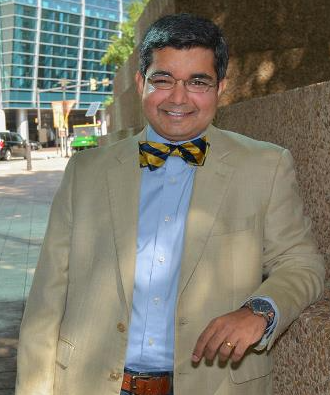 Saurabh Vishnubhakat, J.D., Professor of Law, Yeshiva University Benjamin N. Cardozo School of Law
Saurabh Vishnubhakat, J.D., Professor of Law, Yeshiva University Benjamin N. Cardozo School of LawSaurabh Vishnubhakat is Professor of Law at Cardozo School of Law. Professor Vishnubhakat’s expertise is in the areas of intellectual property, administrative law, and federal litigation, especially from an empirical perspective. His legal writings have been cited in federal judicial opinions, agency regulations, and over two dozen Supreme Court briefs. His latest work is published or forthcoming in the Indiana Law Journal, the Washington and Lee Law Review, and the Iowa Law Review as well as the peer-reviewed Journal of the Copyright Office Society of the USA and Journal of Law and the Biosciences.
His research explores the interaction of the U.S. intellectual property system with federal courts and agencies, among other topics. With a background in the natural sciences, Professor Vishnubhakat brings a scientific mindset to legal thinking and is dedicated to teaching students how to build arguments with analytical rigor.
Prior to his appointment at Texas A&M, Professor Vishnubhakat served in the United States Patent and Trademark Office as principal legal advisor to that agency’s first two chief economists. He was also a faculty fellow at Duke Law School, where he co-taught patent law, and was a postdoctoral associate at the Duke Center for Public Genomics, where he researched law and policy issues surrounding innovation in genetics and biomedicine.
Professor Vishnubhakat holds both a J.D. and LL.M. in intellectual property from the University of New Hampshire Franklin Pierce School of Law, where he was an editor of the Law Review. He also holds a B.S. in chemistry from the Georgia Institute of Technology. He is admitted to the bars of Texas, Illinois, the U.S. Court of Appeals for the Federal Circuit, and the Supreme Court of the United States.